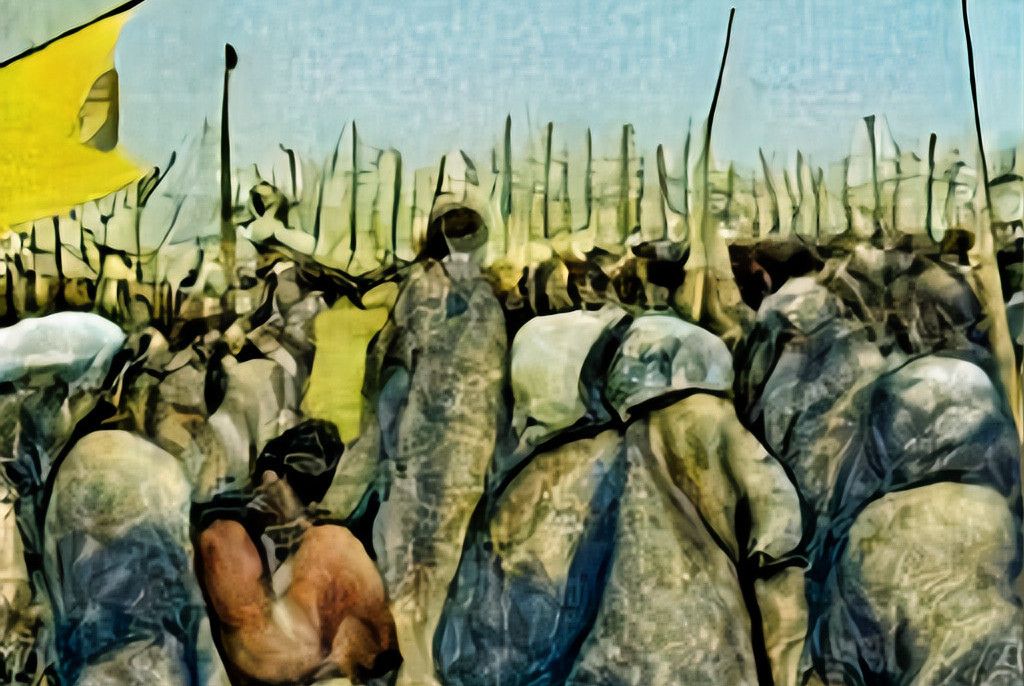Flight and Fight

Imagine you are forced to flee your home. What would you take?
Perhaps some clothing, food, and water. Portable shelter? Would you take A computer? Camouflage? A gun? Ammo? How do you imagine yourself as a refugee? How do you imagine those you would encounter?
Many Latin Americans already seek a better life in the economically and politically stable United States, escaping resource scarcity and the inability to make a living at home ... More problematic is that the number of criminals and “special interest aliens” (potential terrorists from countries that are home to known networks) entering the country has increased several-fold in recent years.
Climate Change and Immigration - American Secutiry Project
Imagine you exist on the opposing side of this border. Imagine you watch in horror as endless refugees arrive seeking help. How do you imagine you'll help them? Imagine your "oasis" already allows you access to so little. It is already starving you, but perhaps it's also protecting you from them. Will you still side with those seeking refuge? Who will you side against?
Around the world, climate change increases the risk of instability and conflict. Rising seas are already swallowing low-lying lands, from Bangladesh to Pacific islands, forcing people from their homes. Caribbean islands and Central American coasts are vulnerable, as well. Globally, we could see a rise in climate change refugees. And I guarantee you the Coast Guard will have to respond.
- Barack Obama

Imagine you're forced to flee. Where do you flee to? Oasis? Somewhere cooler? How will you be welcomed? What will you face? As you escape the inhospitable landscape, what will persist there? Will it watch you? Will it allow you to travel? Will it act as a friend? Or a foe?
“When people typically hear the word sustainable, they automatically jump to an assumption that it’s hugging a tree, it’s saving the world, [but] it’s more than the environmental piece. It’s an absolutely legitimate and important piece from the environmental perspective, but there’s an economic perspective to sustainability, there’s a political perspective to sustainability, there’s a cultural aspect to sustainability—we have to approach all of those.”
And sustainability’s most important piece, Goudreau explained, is military-tactical. As he said it, I couldn’t help but think of the countless surveillance towers dotting the Sonoran desert in the U.S. borderlands, powered by solar panels. Sustainable, renewable energy resources would not only cut down on emissions, Goudreau said, it would make the military “more lethal.”
“We’ve always designed our systems to achieve victory. Not by small margins. But to crush the enemy . . . I never want to be in a close fight. I don’t want it to be an even fight. I want to be,” Goudreau stressed, “the overwhelming winner.” Sustainable national security no longer seemed so pretty.
Storming the Wall - Chapter 2: Sustainable National Security

Imagine you are shot at as you flee. Not by those chasing you out, but by those seeking to keep you in. Imagine you are caught and thrown back into the inhospitable situation where you must work and die. Imagine the "systems of deterrence" killing your loved ones.
Luis Carlos, the oldest in the group and the only one who has made the journey, says that he spent three months in a U.S. prison after he crossed the border a previous time. He has a distinct almost disfigured face, and reminds me of a Salvadoran man I interviewed at a migrant shelter the year before in Arriaga, Mexico, who had a deep purple bruises, dislocated fingers, and fresh stitches from being beaten with baseball bats and then thrown from a moving train.
Storming the Wall - Chapter 3: The 21st-Century Border
At what point do you transition from simply being a refugee to something else? How many systems of punishment and death must you face until you have no choice but to no longer seek refuge but liberation? When you finally do, what will your plan be then?
By the time the rebels reached safety ... only a dozen of the original 82 men were left. And so the story goes, as this small band of rebels regrouped, Fidel asked "Do we still have some rifles?" Upon confirmation, Fidel proclaimed
"Well now we have won the war."
Blowback - Season 2 Episode 2 - 43:06
